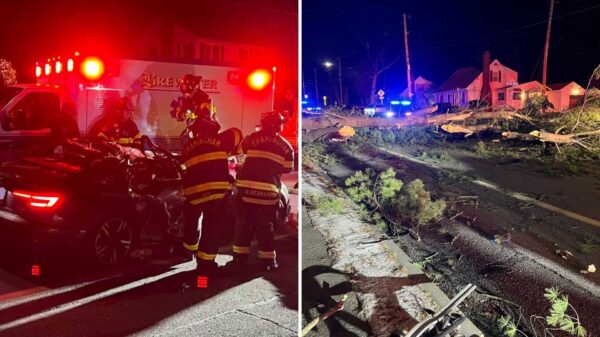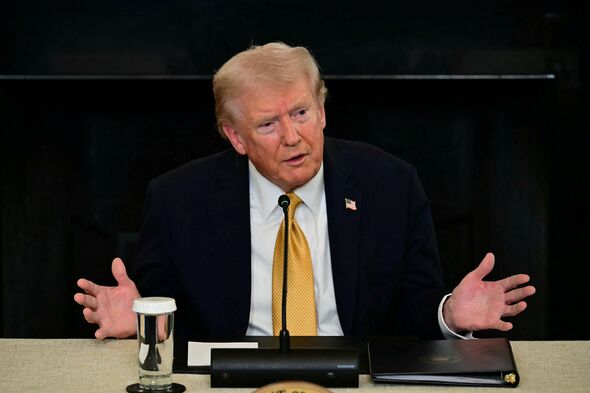UPDATE: President Donald Trump has escalated his military campaign against alleged Venezuelan drug traffickers, confirming the extrajudicial killings of at least 37 individuals over the past month. In a tense press conference held earlier today, Trump indicated a possible expansion of strikes to land operations, igniting concerns over U.S. military engagement in South America.
During the briefing, Trump stated, “I think we’re just gonna kill people. Okay? We’re gonna kill them. They’re gonna be, like, dead,” emphasizing his aggressive stance. He added that “the land is going to be next,” suggesting plans to target operations within Venezuela without seeking congressional approval.
The U.S. military recently conducted airstrikes in the eastern Pacific, killing three people on June 14, 2023, following another strike that claimed two lives the previous night. Defense Secretary Pete Hegseth announced these operations as part of a broader crackdown on drug trafficking, marking a significant shift from previous strikes that primarily targeted vessels in the Caribbean Sea.
Hegseth drew parallels between the military’s current campaign and the war on terrorism initiated after the September 11 attacks, stating, “Just as Al Qaeda waged war on our homeland, these cartels are waging war on our border and our people.” He declared, “there will be no refuge or forgiveness — only justice,” intensifying the administration’s rhetoric against drug cartels.
This aggressive military action raises alarm among lawmakers from both parties. Senator Mark Kelly expressed deep concerns, questioning the effectiveness of regime change efforts, stating, “How often has regime change worked out well for the United States?” He warned that such actions could jeopardize American lives and ultimately make the situation more dangerous.
As tensions escalate in the region, Trump’s administration is also facing criticism for bypassing Congress in military decisions. The ongoing operations have led to speculation that these strikes might serve as a pretext for further efforts to oust Venezuelan President Nicolás Maduro, whom Trump has labeled a “narco-terrorist.”
In a clear show of force, the U.S. has deployed B-52 bombers over the Caribbean, signaling a significant military presence in the region. However, Trump denied reports that Air Force B-1 bombers were flown near Venezuela earlier today, underscoring the administration’s controversial military posture.
As this situation develops, the implications of Trump’s military strategy could have lasting impacts on U.S.-Venezuela relations and regional stability. Analysts are closely monitoring the administration’s next moves as it navigates the complex landscape of international drug trafficking and political unrest.
Stay tuned for updates as this urgent situation unfolds. The ramifications of these actions are poised to resonate beyond the borders of Venezuela, affecting U.S. foreign policy and security in the region.





































































